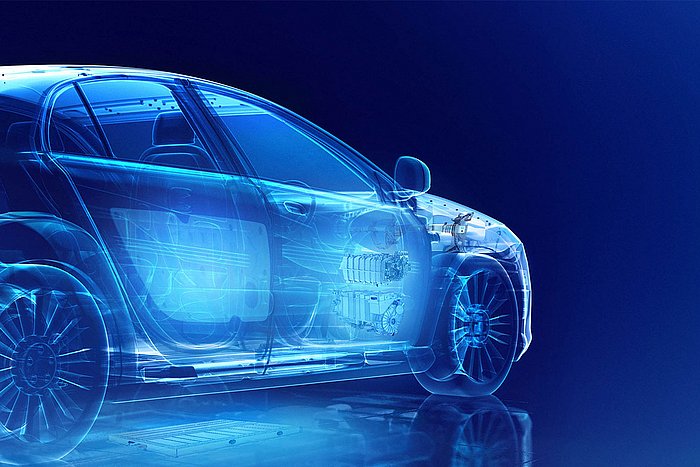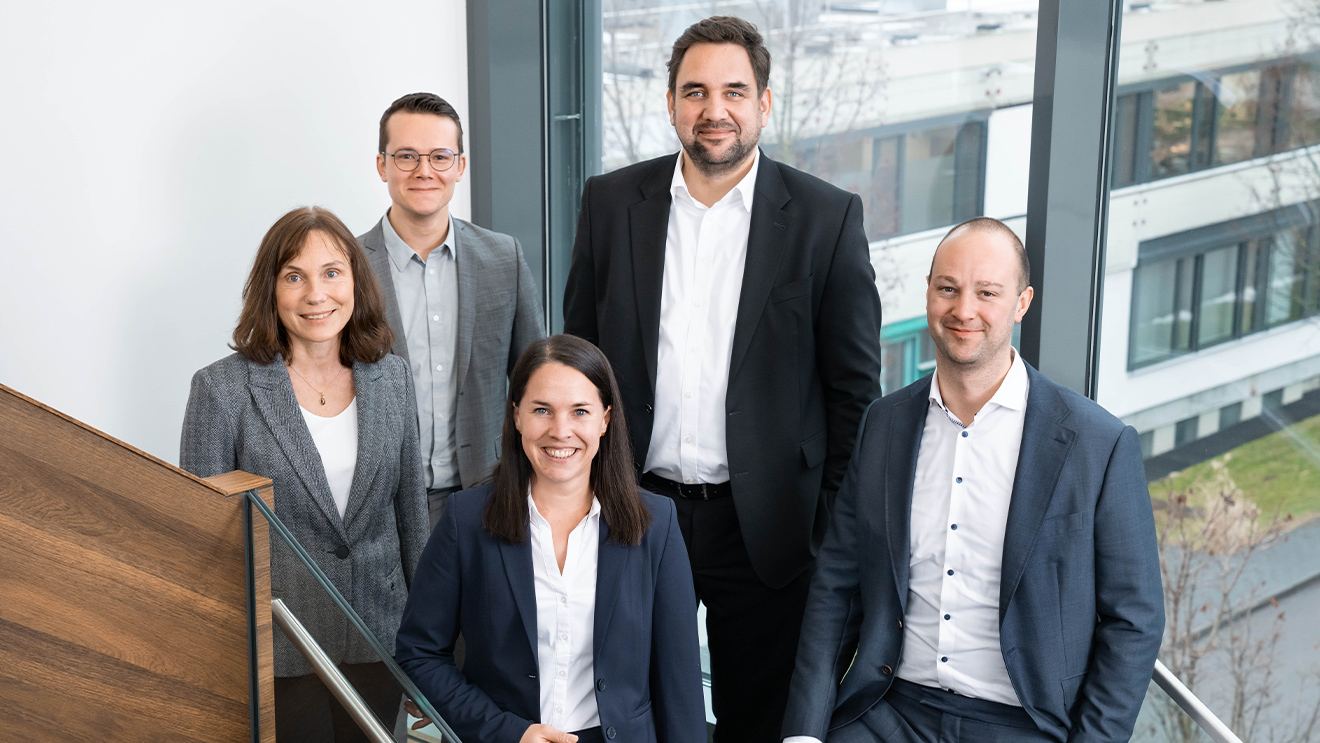- Operating free cash flow of EUR 78.6 million in third quarter - and EUR 102.3 million in first nine months - means further reduction of net debt
- Revenue down 11.7% year on year at EUR 381 million in third quarter, impacted in part by currency effects; revenue declines by 21.2% to EUR 1,030 million in first nine months
- EBIT margin up year on year at 5.0% in third quarter, but down markedly at 0.2% in first nine months
- Outlook (before exceptional factors) reaffirmed within challenging market environment
Dettingen/Erms (Germany), November 10, 2020 +++ The general recovery seen throughout the automobile markets in the third quarter was also reflected in the quarterly results of ElringKlinger AG. Although revenue was still 11.7% down on the prior-year figure, at EUR 381.2 million, it was up substantially - by EUR 129 million - on revenue generated in the second quarter. Currency effects played a tangible role during the third quarter: adjusted for the effects of exchange rate movements and M&A activities, revenue fell by EUR 32.4 million or 7.5% year on year. Thus, the change in revenue corresponded to the performance of the European market as a whole. At a global level, the decline in automobile production was just 3.5% due to the strong performance of China.
Recovery in incoming orders
ElringKlinger's situation with regard to orders also improved markedly: while order intake had fallen sharply in the second quarter of 2020, it actually exceeded the prior-year figure of EUR 437.6 million in the period from July to September 2020 (adjusted for currencies) - standing at EUR 458.7 million. This corresponds to growth of 4.8%. Excluding the comparatively strong effects of currency translation, this period saw a decline of 3.2%, pushing the figure down to EUR 423.6 million. Based on the assumption of stable exchange rates, order backlog - at EUR 1,020.7 million as of September 30, 2020 - was close to its prior-year level of EUR 1,068.7 million. Factoring in currency movements, order backlog amounted to EUR 971.8 million, which represents a decline of 9.1%.
EBIT in positive territory after first nine months despite COVID-19 pandemic
The recovery in business was also reflected in earnings: In the third quarter, ElringKlinger recorded consolidated earnings before interest and taxes (EBIT) of EUR 18.9 million, which corresponds to an EBIT margin of 5.0%. This was attributable, among other factors, to the sustained efficacy of a global program implemented by the Group at the beginning of 2019 in order to raise efficiency levels. In this context, the Group managed to make cost savings of around EUR 12 million compared to the same quarter a year ago. Due to this performance, Group EBIT for the first nine months was also within positive territory again at EUR 2.5 million.
As Dr. Stefan Wolf, CEO of ElringKlinger AG, pointed out: "Our global program aimed at raising efficiency levels is clearly taking effect: alongside the noticeable upturn in our EBIT margin, we also achieved improvements with regard to our other key financial indicators. Overall, the results of the third quarter are indeed encouraging, given the current business climate. The decisive factor for the rest of the 2020 financial year will now be the extent to which the second wave of infection impacts on the markets and economic activity."
Operating free cash flow well within positive territory
Alongside the disciplined approach to investment spending, the Group also continued to pursue its measures aimed at optimizing working capital. Inventories were scaled back by EUR 69 million in the last twelve months, while trade receivables were reduced by EUR 39 million. Net working capital improved from EUR 487 million to EUR 407 million. Among other factors, this helped to lift operating free cash flow from EUR -2.2 million in the first and EUR 25.8 million in the second quarter to EUR 78.6 million in the third quarter. This is close to the high level recorded after nine months in the previous year. As a result, net debt was scaled back from EUR 682 million as of September 30, 2019, to EUR 512 million at the end of the first nine months of 2020. This consistent improvement becomes even more apparent when comparing the current level with the starting point of the efficiency program as of the first quarter of 2019: since then, the Group has reduced its net financial liabilities by more than EUR 280 million.
Assessment of full annual period still hampered by second wave of infection
The market situation as a whole remains very difficult to assess. Following a rapid recovery in China, dynamic developments in North America, and the steady improvement in Europe, the coronavirus pandemic is again dominating events. Europe and North America, in particular, are being enveloped by a second wave of infection. Many states have again stepped up their protective measures and in some cases restricted economic activity, while making every effort to avoid complete lockdowns similar to those seen during the spring. Regionally, stricter measures, including temporary closures, cannot be ruled out. The repercussions of such measures will also be felt throughout the car markets. Against this backdrop, it is indeed possible that recovery may be interrupted.
Outlook (before exceptional factors) confirmed
Given the uncertainties outlined above, it is still not possible to make a sufficiently reliable estimate of developments in the fourth quarter and thus the remainder of the year. As regards fiscal 2020 as a whole, ElringKlinger still anticipates that the change in revenue in organic terms will be slightly better than the figure relating to global automobile production. In this context, experts from the industry institute IHS currently estimate a year-on-year decline of 18% in production output for the annual period as a whole.
In terms of earnings, the Group is again anticipating an EBIT margin that is visibly lower than in the previous year (3.5%). This does not include potential compensation in the low to mid double-digit million euro range from the strategic partnership with Airbus. This agreement is scheduled to be closed in the course of this year.
Key financials for the third quarter and first nine months of 2020
| in EUR m | 9M
2020 | 9M
2019 | ∆ abs. | ∆ rel. | Q3
2020 | Q3
2019 | ∆ abs. | ∆ rel. |
| Order intake | 971.1 | 1,355.7 | -384.6 | -28.4% | 423.6 | 437.6 | -14.0 | -3.2% |
| Order backlog | 971.8 | 1,068.7 | -96.9 | -9.1% | 971.8 | 1,068.7 | -96.9 | -9.1% |
| Revenue | 1,029.6 | 1,307.1 | -277.5 | -21.2% | 381.2 | 431.9 | -50.7 | -11.7% |
| of which currency | | | -22.5 | -1.7% | | | -17.1 | -4.0% |
| of which M&A | | | -3.4 | -0.3% | | | -1.2 | -0.3% |
| of which organic | | | -251.6 | -19.3% | | | -32.4 | -7.5% |
| EBITDA | 93.9 | 123.6 | -29.7 | -24.0% | 49.0 | 49.8 | -0.8 | -1.6% |
| EBIT | 2.5 | 36.9 | -34.4 | >-100% | 18.9 | 20.3 | -1.4 | -6.9% |
| EBIT margin (in %) | 0.2 | 2.8 | -2.6PP | - | 5.0 | 4.7 | +0.3PP | - |
| Net finance cost | -25.9 | -14.7 | -11.2 | - | -9.8 | -5.0 | -4.8 | - |
| Profit before taxes | -23.4 | 22.2 | -45.6 | >-100% | 9.2 | 15.3 | -6.1 | -39.9% |
| Taxes on income | 7.7 | 24.8 | -17.1 | -69.0% | 6.3 | 8.2 | -1.9 | -23.2% |
| Net income (after non-controlling interests) | -30.1 | -3.4 | -26.7 | >-100% | 3.4 | 6.7 | -3.3 | -49.3% |
| Earnings per share (in EUR) | -0.47 | -0.05 | -0.42 | >-100% | 0.05 | 0.11 | -0.06 | -54.5% |
| Investments (in PPE and investment property) | 37.9 | 74.9 | -37.0 | -49.4% | 15.1 | 25.4 | -10.3 | -40.6% |
| Operating free cash flow | 102.3 | 110.1 | -7.8 | -7.1% | 78.6 | 30.8 | +47.8 | >+100 % |
| Net working capital | 407.3 | 487.0 | -79.7 | -16.4% | | | | |
| Equity ratio (in %) | 41.0 | 40.7 | +0.3PP | - | | | | |
| Net financial liabilities | 512.4 | 681.5 | -169.1 | -24.8% | | | | |
| Employees (as of Sep 30) | 9,770 | 10,492 | -722 | -6.9% | | | | |












